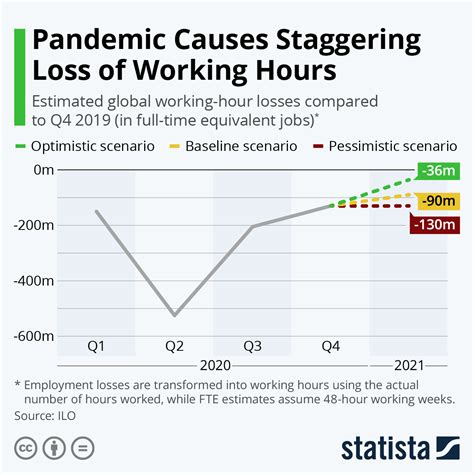
Lamar Jackson is sitting out voluntary organized team activities (OTAs) and has forfeited a $750,000 workout bonus due to his absence, according to Baltimore Ravens head coach John Harbaugh.
Baltimore, MD – Ravens quarterback Lamar Jackson’s decision to skip voluntary organized team activities (OTAs) has resulted in him missing out on a $750,000 workout bonus, Ravens head coach John Harbaugh confirmed. The absence marks a notable point of discussion as the team prepares for the upcoming season. Jackson’s participation in OTAs is voluntary, but the financial implications of his choice underscore the value the Ravens place on these sessions and player engagement throughout the offseason.
Harbaugh addressed the media following an OTA session, stating explicitly that Jackson’s absence meant he would not receive the bonus. While Harbaugh emphasized that the OTAs are indeed voluntary, he also highlighted the importance of team cohesion and preparation that these sessions provide. “It’s part of the CBA, it’s a voluntary part,” Harbaugh said, referring to the collective bargaining agreement between the NFL and the NFL Players Association. “But it’s always good when guys can be here.”
Jackson’s absence raises questions about his commitment to the team during the offseason and the potential impact on the team’s readiness for the regular season. The workout bonus is typically tied to attendance and participation in a pre-determined number of offseason workouts. Given the financial incentive, the decision to forego the bonus suggests that Jackson may have alternative training arrangements or other priorities during this period.
The Ravens have made significant investments in their offense, bringing in new coaches and players to better support Jackson. These additions aim to improve the passing game and create a more balanced offensive attack. Jackson’s presence at OTAs would have provided an opportunity to build rapport with these new teammates and refine the offensive strategies.
This isn’t the first time Jackson’s offseason activities have come under scrutiny. In previous years, his absence from certain voluntary workouts has led to questions about his dedication and leadership. While Jackson has consistently performed at a high level during the regular season, concerns about his offseason preparation persist.
The Ravens coaching staff and front office will likely be monitoring Jackson’s activities closely as the offseason progresses. It remains to be seen whether he will participate in mandatory minicamp, which would provide a more definitive indication of his commitment to the team’s offseason program.
The missed $750,000 workout bonus serves as a reminder of the business side of football and the financial considerations that come into play, even for star quarterbacks. It also highlights the ongoing debate about the value of voluntary workouts and the extent to which players should be expected to participate.
Diving Deeper: The Contractual Details and Implications
The $750,000 workout bonus was a component of the five-year, $260 million contract extension that Jackson signed with the Ravens in April 2023. This contract made him one of the highest-paid players in the NFL. The bonus was structured to incentivize Jackson’s participation in the team’s offseason conditioning program.
NFL contracts often include various incentives and bonuses tied to performance, attendance, and other factors. These incentives are designed to motivate players and ensure they are actively contributing to the team’s success. In Jackson’s case, the workout bonus was intended to encourage him to be present during the voluntary OTAs, allowing him to work with coaches and teammates in preparation for the season.
By choosing not to attend the OTAs, Jackson has effectively forfeited the bonus. While the $750,000 may seem significant, it represents a relatively small fraction of his overall contract value. However, the decision could have broader implications for the team’s perception of his commitment and his relationship with the coaching staff.
The Ravens likely included the workout bonus in Jackson’s contract for several reasons:
- Ensuring Offseason Preparation: The team wants its star quarterback to be in optimal physical condition heading into the season. Regular attendance at workouts helps Jackson maintain his fitness level and prevent injuries.
- Building Team Chemistry: OTAs provide an opportunity for Jackson to develop rapport with his teammates, particularly the new additions to the offense. These sessions allow players to learn the playbook together, practice timing, and build trust.
- Reinforcing Coaching Philosophies: The coaching staff can use OTAs to implement new strategies and techniques. Jackson’s presence allows him to learn these concepts firsthand and provide feedback.
Jackson’s decision to skip the OTAs may stem from a variety of factors. He could have his own preferred training regimen, or he may simply value his time off during the offseason. Regardless of the reason, his absence has financial consequences and raises questions about his commitment to the team’s offseason program.
The Ravens’ Perspective: Balancing Support and Expectations
The Ravens have consistently expressed their support for Lamar Jackson, both publicly and privately. They invested heavily in him with the massive contract extension and have made efforts to surround him with the talent and coaching he needs to succeed.
However, the Ravens also have expectations for Jackson, as they do for all their players. They want him to be a leader, a dedicated teammate, and a positive influence on the team. His attendance at OTAs would have demonstrated his commitment to these values.
Coach Harbaugh has maintained a diplomatic approach to Jackson’s absence, emphasizing that the OTAs are voluntary while also acknowledging the benefits of his participation. “It’s voluntary, that’s the nature of it,” Harbaugh stated. “I don’t have any problem with it. But sure, we would love to have everybody here.”
The Ravens are likely hoping that Jackson will attend the mandatory minicamp, which is scheduled for later in the offseason. This camp is not optional, and Jackson’s presence would send a strong message to the team and the fans that he is fully committed to the upcoming season.
The team’s perspective is a delicate balance between supporting their star quarterback and holding him accountable for his responsibilities. They want to create an environment where Jackson feels valued and respected, while also ensuring that he is contributing to the team’s success in every way possible.
Lamar Jackson’s Side: Potential Reasons for Absence
While Lamar Jackson has not publicly addressed his reasons for skipping the OTAs, there are several potential factors that may have influenced his decision.
- Personal Training Regimen: Jackson may have his own preferred training methods and believes that he can adequately prepare for the season without participating in the team’s workouts. He may be working with a personal trainer or following a specialized program that he finds more effective.
- Injury Prevention: Jackson has faced injuries throughout his career, and he may be taking extra precautions to protect his body during the offseason. He may believe that the OTAs are too risky and could increase his chances of getting hurt.
- Family and Personal Time: The offseason provides an opportunity for Jackson to spend time with his family and pursue personal interests. He may have decided that he needed a break from football-related activities and wanted to focus on other aspects of his life.
- Contractual Considerations: Jackson’s contract includes a significant amount of guaranteed money, and he may feel less pressure to attend voluntary workouts. He may believe that his performance on the field is the most important factor in his long-term success.
- Disagreement with Coaching Staff: While unlikely, it’s possible that Jackson has a disagreement with the coaching staff or the team’s approach to offseason training. He may believe that the OTAs are not structured in a way that is beneficial to him.
It’s important to note that these are just potential explanations for Jackson’s absence. Without direct communication from Jackson himself, it’s impossible to know his true motivations.
Impact on Team Dynamics and Preparation
Lamar Jackson’s absence from OTAs could have several implications for the Ravens’ team dynamics and preparation for the upcoming season.
- Missed Opportunity for Chemistry Building: OTAs are a valuable opportunity for players to build chemistry and rapport. Jackson’s absence limits his ability to connect with his teammates, particularly the new additions to the offense.
- Delayed Implementation of Offensive Schemes: The coaching staff uses OTAs to introduce and refine new offensive schemes. Jackson’s absence could delay the implementation of these schemes and make it more difficult for the team to execute them effectively during the regular season.
- Leadership Vacuum: As the team’s starting quarterback, Jackson is expected to be a leader both on and off the field. His absence from OTAs could create a leadership vacuum and make it more difficult for the team to establish a strong sense of unity.
- Negative Perception: Jackson’s absence could be perceived negatively by some fans and media members. They may view it as a lack of commitment to the team or a sign that he is not taking his responsibilities seriously.
- Potential for Distraction: The controversy surrounding Jackson’s absence could become a distraction for the team. Players and coaches may be forced to answer questions about his decision, which could take away from their focus on preparing for the season.
Despite these potential drawbacks, the Ravens have expressed confidence that they can overcome Jackson’s absence and still be well-prepared for the upcoming season. They have a talented roster, a experienced coaching staff, and a strong team culture.
The Larger Context: Voluntary vs. Mandatory Workouts in the NFL
The debate over voluntary vs. mandatory workouts is a recurring theme in the NFL. The NFL Players Association (NFLPA) has long advocated for players’ rights to choose whether or not to participate in voluntary offseason programs. The NFLPA argues that these programs can be physically demanding and increase the risk of injury. They also believe that players should have the freedom to spend their offseason as they see fit, whether that means focusing on personal training, spending time with family, or pursuing other interests.
The NFL, on the other hand, emphasizes the benefits of voluntary workouts for team building, skill development, and injury prevention. The league argues that these programs provide a valuable opportunity for players to learn the playbook, build rapport with their teammates, and stay in shape during the offseason.
The collective bargaining agreement (CBA) between the NFL and the NFLPA addresses the issue of voluntary workouts. The CBA specifies which offseason activities are mandatory and which are voluntary. Mandatory activities include minicamp and training camp. Voluntary activities include OTAs and other offseason workouts.
Players who choose not to participate in voluntary workouts are not subject to fines or suspensions. However, they may miss out on certain bonuses or incentives that are tied to attendance.
The debate over voluntary vs. mandatory workouts highlights the ongoing tension between the players’ rights and the team’s desire to maximize performance. It’s a complex issue with no easy solutions.
Historical Precedents: Other Star Quarterbacks Skipping OTAs
Lamar Jackson is not the first star quarterback to skip voluntary OTAs. Over the years, several other high-profile quarterbacks have made similar decisions.
- Tom Brady: Throughout his career, Tom Brady occasionally skipped voluntary OTAs to focus on his own training regimen and spend time with his family. His absence rarely raised concerns, as he consistently performed at a high level during the regular season.
- Aaron Rodgers: Aaron Rodgers has also skipped voluntary OTAs at times, citing various reasons such as personal commitments or a desire to avoid unnecessary wear and tear on his body.
- Peyton Manning: Even Peyton Manning, known for his meticulous preparation, occasionally missed voluntary workouts to focus on specific aspects of his game or to rehab from injuries.
These examples demonstrate that it is not uncommon for star quarterbacks to prioritize their own training and personal lives during the offseason. While their absence may raise some eyebrows, it does not necessarily indicate a lack of commitment or dedication to the team.
The Ravens’ Alternatives: Contingency Plans in Place
In the event that Lamar Jackson were to miss significant time due to injury or other reasons, the Ravens have contingency plans in place to ensure that the team remains competitive.
- Backup Quarterback: The Ravens have Tyler Huntley as their backup quarterback. Huntley has experience starting games in the NFL and has shown flashes of potential. While he is not on Jackson’s level, he is a capable backup who can manage the offense and keep the team competitive.
- Run-Focused Offense: The Ravens have a strong running game, led by running back J.K. Dobbins. In the absence of Jackson, they could lean more heavily on the running game to control the clock and wear down opposing defenses.
- Defensive Prowess: The Ravens have a talented defense that is capable of shutting down opposing offenses. In the absence of Jackson, they could rely on their defense to keep games close and give the team a chance to win.
These contingency plans provide the Ravens with some reassurance that they can remain competitive even if Jackson is not available. However, there is no denying that Jackson is a crucial part of the team’s success, and his absence would undoubtedly have a negative impact on their chances of winning.
The Road Ahead: What to Expect Moving Forward
Looking ahead, there are several key developments to watch for regarding Lamar Jackson and the Ravens.
- Mandatory Minicamp: The mandatory minicamp is scheduled for later in the offseason. Jackson’s attendance at this camp is crucial, as it would demonstrate his commitment to the team and provide an opportunity for him to work with his teammates and coaches.
- Training Camp: Training camp is the final stage of preparation before the regular season. Jackson’s performance in training camp will be closely scrutinized, as it will provide an indication of his readiness for the season.
- Regular Season Performance: Ultimately, Jackson’s performance during the regular season will be the most important factor in determining the success of the Ravens. If he plays at a high level, the team will have a good chance of competing for a Super Bowl.
The situation surrounding Lamar Jackson and the Ravens is complex and multifaceted. His decision to skip voluntary OTAs has raised questions about his commitment to the team, but it is important to consider all the factors involved before drawing any conclusions. The coming weeks and months will provide more clarity on Jackson’s mindset and the Ravens’ preparations for the upcoming season.
The Financial Ramifications: More Than Just a Bonus
While the immediate consequence of Lamar Jackson missing OTAs is the loss of a $750,000 workout bonus, the financial ramifications extend beyond this single sum. His presence (or absence) at these voluntary sessions can influence team morale, future contract negotiations (either his or those of his teammates), and even the team’s overall market value.
The perceived commitment of a star player like Jackson plays a significant role in attracting and retaining other talent. If teammates believe he’s fully invested in the team’s success, they’re more likely to be motivated and contribute their best efforts. Conversely, if there’s a perception of disengagement, it could negatively impact team cohesion and performance.
Furthermore, while Jackson is currently under a lucrative contract, future negotiations are always on the horizon. His actions during the offseason are scrutinized and factored into assessing his value and commitment. A consistent pattern of skipping voluntary activities could potentially affect his leverage in future contract talks or even the team’s willingness to offer extensions.
Beyond the direct impact on player contracts, the team’s overall market value can be influenced by the perceived stability and commitment of its key players. A team with a strong, dedicated leader is often viewed as a more attractive investment, both for sponsors and potential buyers.
In essence, Lamar Jackson’s decision to forego the workout bonus highlights the intertwined nature of performance, commitment, and financial value in the NFL. It’s a reminder that even seemingly small decisions can have broader financial implications for both the player and the team.
FAQ: Lamar Jackson’s Missed Workout Bonus
Q1: Why did Lamar Jackson miss the workout bonus?
A: Lamar Jackson missed the $750,000 workout bonus by not attending the Baltimore Ravens’ voluntary organized team activities (OTAs). The bonus was tied to his participation in these offseason workouts.
Q2: Are OTAs mandatory for NFL players?
A: No, OTAs are voluntary. Players are not required to attend, but there can be financial incentives, like a workout bonus, for participation.
Q3: What did Ravens head coach John Harbaugh say about Jackson’s absence?
A: Harbaugh confirmed that Jackson would not receive the bonus due to his absence. He emphasized that OTAs are voluntary but also noted the importance of team cohesion and preparation that these sessions provide.
Q4: Does this affect Lamar Jackson’s contract with the Ravens?
A: The missed bonus is a small part of his overall contract, a five-year, $260 million extension. However, it could raise questions about his commitment to the team’s offseason program and potentially influence future negotiations.
Q5: What are potential reasons for Jackson’s absence from OTAs?
A: Possible reasons include having his own preferred training regimen, prioritizing injury prevention, wanting personal and family time, contractual considerations, or disagreement with coaching staff on the OTAs structuring.









